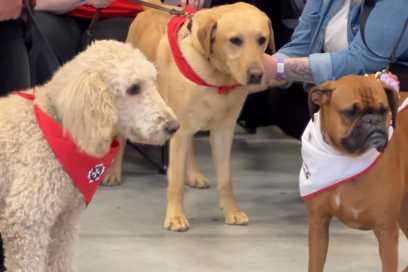More Confirmed Cases Of Canine Influenza In Essex County
Friday January 12th, 2018, 1:15pm
Hello time traveller!!
This article is 2703 days old.
The information listed below is likely outdated and has been preserved for archival purposes.
The Windsor-Essex County Health Unit reports that there are now five dogs that were in close contact with the affected dogs have tested positive for canine influenza. Affected and exposed dogs are being confined by their owners to help prevent further spread.
The Health Unit says that canine influenza virus is of concern because it is highly transmissible between dogs, particularly in areas (such as Canada) where dogs do not have natural immunity from previous infection and where canine influenza vaccination is rare.
Canine H3N2 influenza virus is different than the human H3N2 influenza virus that is a common seasonal flu virus in people. There is no known human risk from H3N2 canine influenza virus; however, the risk of reassortment (or mixing together) between the canine H3N2 virus and human seasonal influenza viruses is a potential concern.
As influenza in animals is a reportable disease, the Windsor-Essex County Health Unit, the Ontario Ministry of Health and Long-Term Care (MOHLTC), and Ontario Ministry of Agriculture, Food and Rural Affairs (OMAFRA) are involved in the investigation, along with the University of Guelph.
They say that dog owners in Windsor and Essex County should be vigilant and watch for signs of respiratory disease in their dogs, particularly dogs that frequently have contact with other dogs. Dogs with signs of respiratory disease (e.g. cough, decreased appetite, nasal and eye discharge, and fever) should be kept away from others dogs for at least two weeks. If a dog with potentially infectious respiratory disease is taken to a veterinarian, the veterinary clinic should be informed in advance so that they can take appropriate precautions, such as admitting the dog directly to an examination or isolation room and using isolation precautions.
























